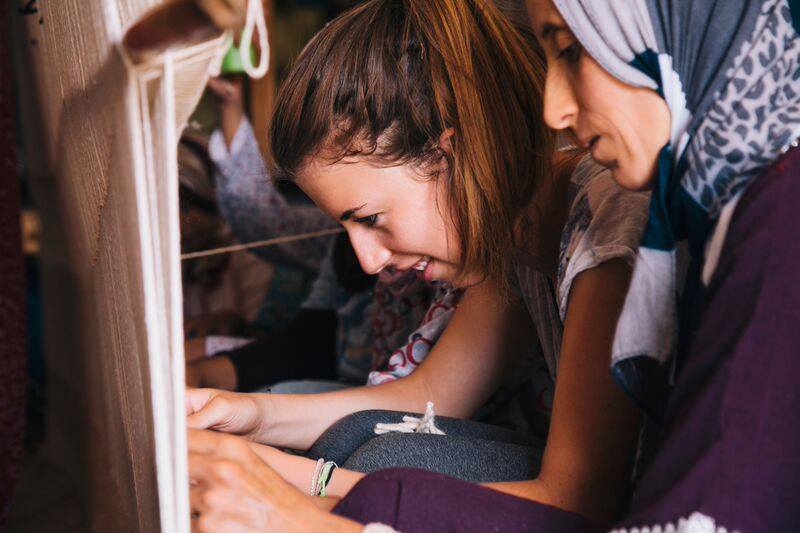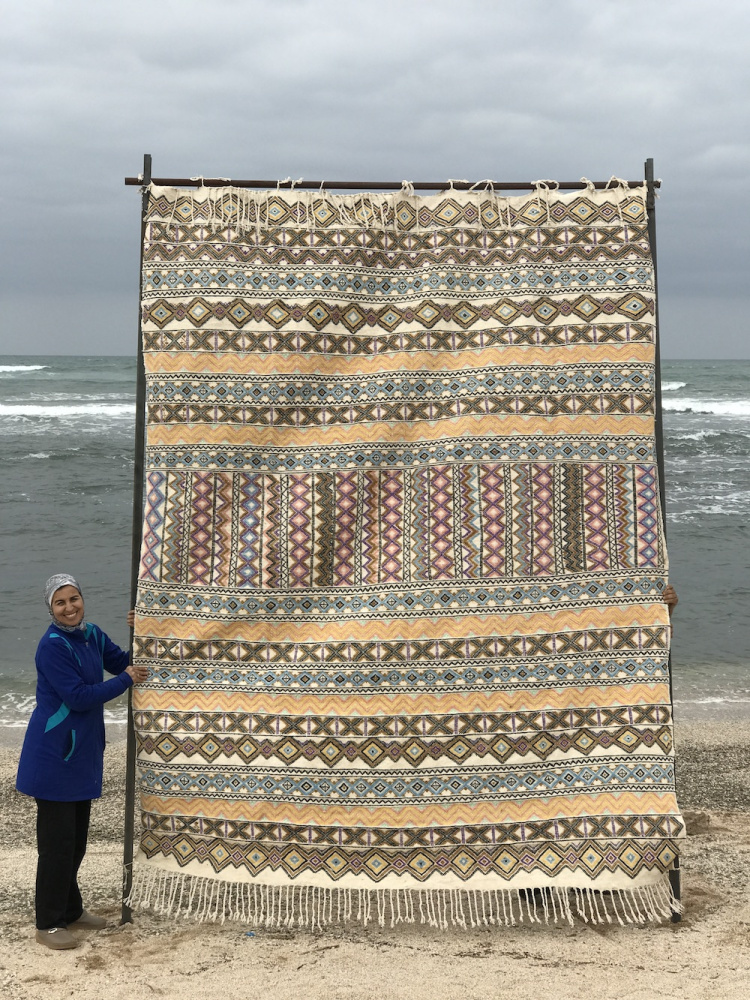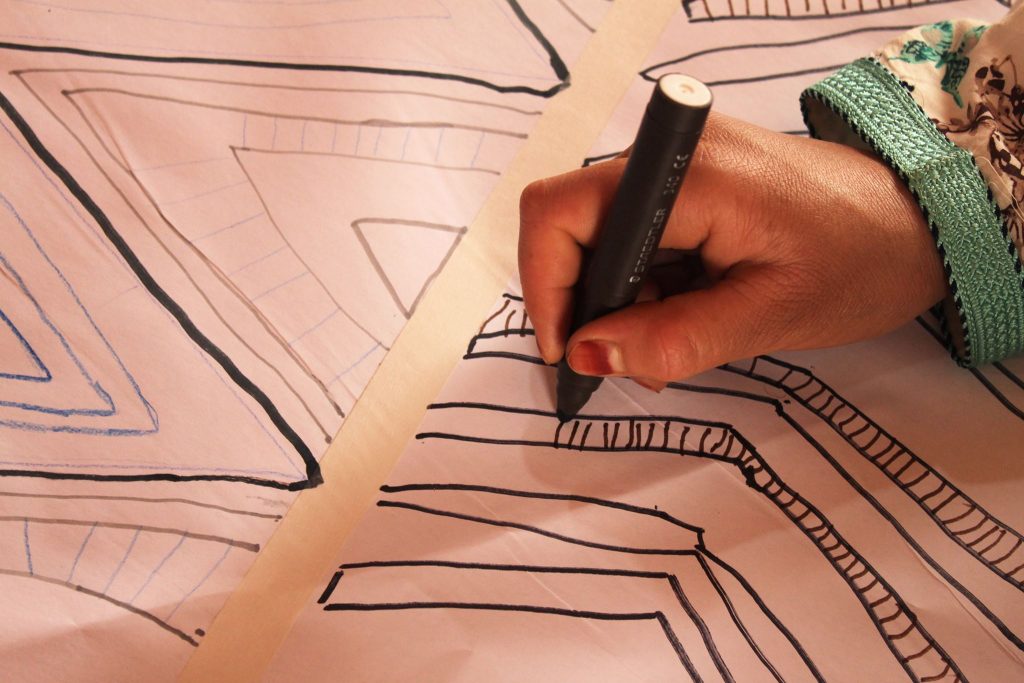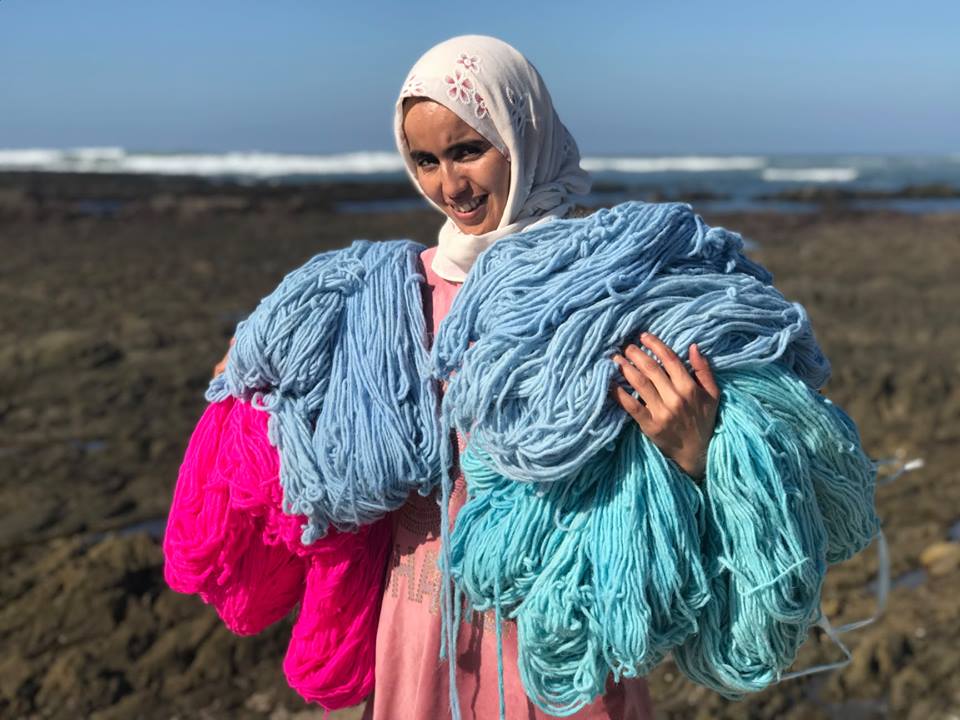The Anou is an online retail store that allows you to purchase handmade fair-trade Moroccan handicrafts including Moroccan rugs, Beni Ourains, and art directly from the artisans who made them – there’s no need for a middleman.
Founder Dan Driscoll was inspired to create The Anou while serving as a Peace Corps volunteer in Morocco. After talking with local woodcarvers, he discovered they weren’t reaping the financial rewards of their labour, even after selling to fair-trade organisations. He realised that in order to get the best return on their work, they needed to be able to sell directly to the customer. So he created The Anou, which allows artisans all over Morocco to find a worldwide market for their creations. The site is owned and operated by the artisans themselves, who photograph their own work and set their own prices.

British designer Sabrina Krause Lopez working with the artisans
“The Anou represents a fundamental shift in the fair-trade industry. Instead of asking how organisations can help, we ask how can we build a resilient community of artisans where outside help and fair-trade organisations are no longer needed,” explained Driscoll.
Artisans across the Anou community have to make a huge jump and take on large challenges to transition to selling directly to customers. In addition to photographing and posting their own products, there are the challenges of how to scale their businesses and manage their growth. It’s not an easy learning curve, but it’s one that has recently seen the company surpass $1 million USD in total sales since they launched the market place several years ago.

A rug designed by Kenza of Association Tithrite, it was the first rug made using Anou’s own in house sourced wool and non-toxic, environmentally friendly dyes
How it works
1. Artisan Led
When a new artisan expresses interest in joining Anou’s community, they are connected with and trained by more experienced and successful artisans on how the platform works.
2. Technology
Training new members begins by building their custom language-free account. The interface allows them to add products, manage inventory, and track orders.
3. Training
All trainings take place at a new artisan’s workshop to guarantee their work is authentic, and to address local obstacles to success. For the same reason, the training is conducted using existing technology and infrastructure.

Sketching out rug designs
4. Photography
During each training session, the artisans practice basic photography skills focused on emphasising the connection between the product, where it was made, and the person who made it.
5. Orders
When a product is purchased, the craftsperson immediately receives a text message, which includes the buyers shipping address. They then reply back with a message to confirm shipments and send tracking numbers. Post office staff are on hand to help illiterate members in writing out address labels.
6. Community
A small portion of every sale is set aside to pay Anou’s artisan trainers and leaders as they support the existing community and train new artisans.

Halima shows off a freshly dyed batch of wool for one of many custom orders



